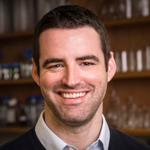 Associate Professor
Associate Professor
Vice Chair for Strategic Planning and Recruitment
Director, Comprehensive Neuroscience Center
Michael J. Fiedlander, PhD Heersink Endowed Professorship
Research Areas: Neurogenetics, substance use disorders, learning and memory, epigenetics, gene regulation and gene editing
Biography
Dr. Day is an Associate Professor in the Department of Neurobiology at UAB. Dr. Day received his Ph.D. from the University of North Carolina, conducted postdoctoral training at UAB, and joined the faculty at UAB in 2014. His lab explores the relationship between epigenetic states and neuronal function, with an emphasis on the brain circuits that regulate motivated behavior.
Research Description
The Day Lab is interested in understanding how experience alters the brain, and how those changes drive future behaviors. We approach this broad topic at diverse levels of analysis that integrate molecular, behavioral, genetic, and epigenetic tools with techniques that probe the function of single neurons and entire neuronal circuits. Research in the Day Lab is supported by the National Institute on Drug Abuse, the National Institute of Mental Health, the McKnight Foundation, and the UAB Heersink School of Medicine. Our current research falls into the specific categories outlined below.
Research Program
Neurobiology of motivated and learned behaviors
The ability to form memories about motivationally driven outcomes is an elementary yet fundamental aspect of learned behavior that is necessary for survival. A major focus of the Day lab is to investigate the neural mechanisms that regulate reward-directed behaviors, and understand how these processes govern our capacity to learn and make decisions about outcomes in our environment. Reward-directed behaviors are controlled by dopamine neurons located in the ventral tegmental area that project to striatal and cortical target sites, such as the nucleus accumbens and prefrontal cortex. We are interested in understanding how neurons within these brain regions signal information about rewards, and how dynamic transcriptional and epigenetic mechanisms respond to rewarding stimuli. To address these questions, we employ a complementary set of techniques including in vivo electrophysiology, optogenetic approaches, epigenetic and viral tools for gene manipulation, RT-qPCR, immunohistochemistry, and RNA and epigenome sequencing, and single-nucleus RNA-seq and chromatin profiling.
Neural substrates of addiction
Drug addiction is a complex and multi-faceted disorder that hijacks normal reward circuits in the brain to drive repeated drug seeking despite adverse consequences. We are interested in understanding how experience with drugs of abuse alters brain reward pathways, with the ultimate goal of reversing these alterations to relieve the burden of addiction. We have found that drugs of abuse produce significant changes in gene expression patterns and epigenetic status in reward-related brain structures, and are now attempting to understand the precise molecular and physiological consequences of these changes. These studies make use of next-generation sequencing, single-cell RNA sequencing and chromatin accessibility profiling, CRISPR-Cas9 tools, chromatin and DNA methylation immunoprecipitation techniques, and targeted delivery of small molecule inhibitors.
Activity-dependent epigenetic and transcriptional regulation in neurons
Changes in neuronal activity levels can result in dynamic and widespread alterations in gene expression, which are a major regulator of synaptic plasticity and also control cell-wide physiological properties. Although epigenetic mechanisms within the neurons are also known to be key regulators of these processes, our current understanding has been limited by the narrow, targeted nature in which epigenetic modifications are measured. To address this shortfall, we are using high-throughput sequencing platforms in tandem with available molecular biology and bioinformatic tools to understand activity-dependent transcriptional and epigenetic processes in a genome-wide fashion. These whole-genome approaches reveal epigenetic profiles across every gene within the genome, and have generated new insights into how these processes are regulated by neuronal activity. Furthermore, these studies provide a fundamental template for understanding how different pharmacotherapies and experience-related changes impinge on neuronal function.
Transcriptional and epigenetic neuropharmacology
Cellular processes that control transcription and translation of genetic information are critical for cellular function and are often implicated in psychiatric and neurological disease states. However, our ability to target these very basic mechanisms is limited by several factors that currently present roadblocks to new pharmacotherapeutic discoveries. We are interested in developing new tools that harness the sequence-specific power of DNA and RNA to regulate these processes in a tunable and precise manner. Our ultimate goal is to find ways to manipulate epigenetic or transcriptional patterns within selected brain regions (or even selected types of neurons) to achieve therapeutic outcomes for brain diseases.
Lifelong and transgenerational epigenetic mechanisms
The eccentric chemistry and biology of some epigenetic processes makes these mechanisms uniquely able to support the long-term cellular storage of information, and potentially even the passage of that information between generations. However, very little is known about the basic molecular processes that regulate these aspects of epigenetic function. We are interested in using the behavioral questions outlined above (reward-based learning and addiction) as a tool to understand how epigenetic mechanisms can support cellular information storage in a broader sense. Further, we hope to understand how inherited epigenetic patterns could contribute to complex behavioral traits or disease states.
Education
Graduate School
Ph.D., University of North Carolina at Chapel Hill
Postdoctoral Fellowship
University of Alabama at Birmingham
Contact
Office Location
Shelby 910
Email
jjday@uab.edu
Phone
205-996-8960